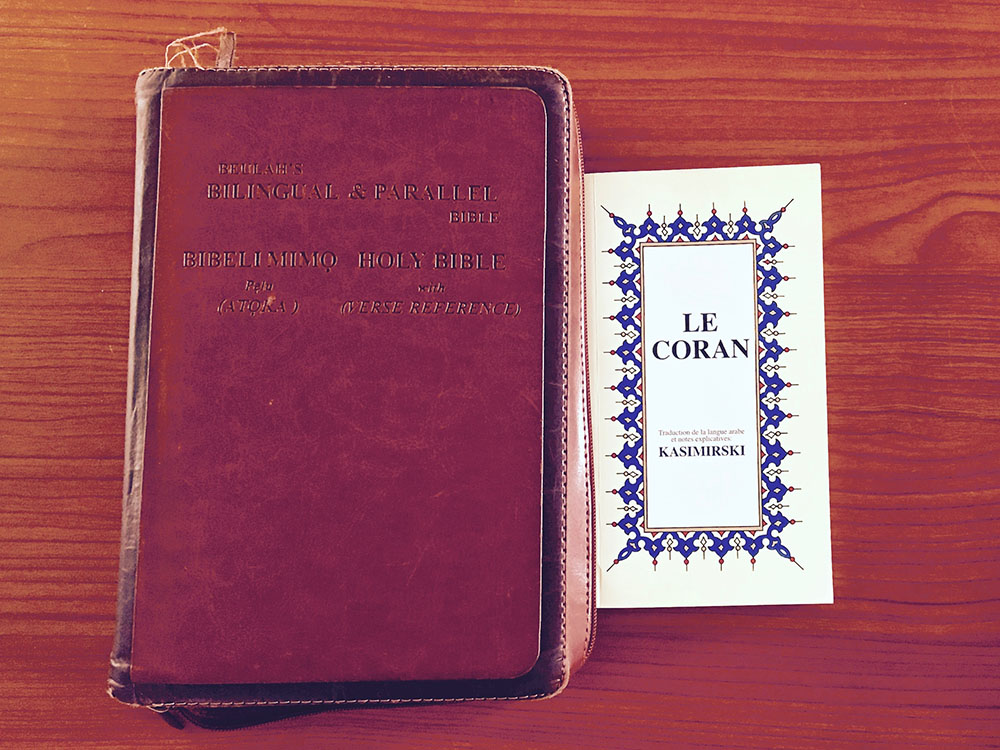PADIR: Perspectives africaines sur le dialogue inter-religieux // African perspectives on inter-religious dialogue (2019 - 2021)

The research programme PADIR, establish at IFRA-Nigeria in 2019, aims at analyzing the field of institutional inter-religious dialogue in Africa from a critical perspective, with Nigeria and Tanzania as case studies.
Discover the project
Inter-religious organisations, forums and projects have flourished at the global level since the beginning of the 2000s, especially after the 9/11 attacks. They differ from the ecumenical dialogue initiated by the Catholic Church after the Second Vatican Council as they are based less on theological discussions than on the idea that religious leaders are key actors in the solving of economic, social and political problems, especially linked to poverty, extremism and terrorism. Mobilizing the language of « peace building », many initiatives have been launched by religious organisations, NGOs as well as States and regional bodies as part of their diplomatic action.
With their population roughly divided between Christians and Muslims, both Nigeria and Tanzania have been considered important « laboratories » for inter religious dialogue in Africa. Perceived as being marred with conflicts and in a perpetual state of « crisis », Nigeria is also identified at a frontline of the global fight against terrorism and religious extremism. On the other side of the spectrum, Tanzania is seen as a stable country, a « heaven of peace » and example of religious coexistence, though under multiple threat linked to international Islamist networks, sporadic ethnic violence or separatism.
In both these cases, international involvement in the national fields of inter-religious dialogue has met endogenous dynamics. In Nigeria, several initiatives had been launched since the mid 1990s, with a new vigor since the return to democracy in 1999. Both at the federal and at the States' level, inter-religious forums and organisations have been created, often supported by local « big men » and politicians competing for votes and influence. In Tanzania, the rhetoric of « peace and stability » and the development of local inter-religious dialogue forum has been parallel to the growing involvement of religious leaders in the political sphere, in the context of the perpetuation of a dominant party system and authoritarian politics despite the return to multipartism in 1992.
The objective of PADIR is to identify the actors, organisations and networks that have contributed to the emergence of the field of inter-religious dialogue and its functioning, both from a local, national and transnational perspective. Through the case studies of Nigeria and Tanzania, it intends to understand better inter-religious relations, the dynamics of both Christian and Islamic religious fields, as well as the complex relationships between religious and political actors.
Methodology
This project will combine several qualitative methods including semi-structured interviews with national and international actors of the inter-religious dialogue field in Nigeria and Tanzania ; biographical interviews with key religious figures involved ; observation of projects and initiatives on inter-religious dialogue ; social network analysis.
The comparison between two contrasted cases will highlight the similarities and differences between the Nigerian and Tanzanian approaches to inter-religious dialogue as well as the factors explaining these variations.
Two workshops will be organized in Dar es Salaam and Ibadan in 2020 and publications are expected in 2021.
Coordinator
Dr Cyrielle Maingraud Martinaud
Research Associates
Abimbola Omopo (Institute of African Studies / UI)

Social Media
Mailing List